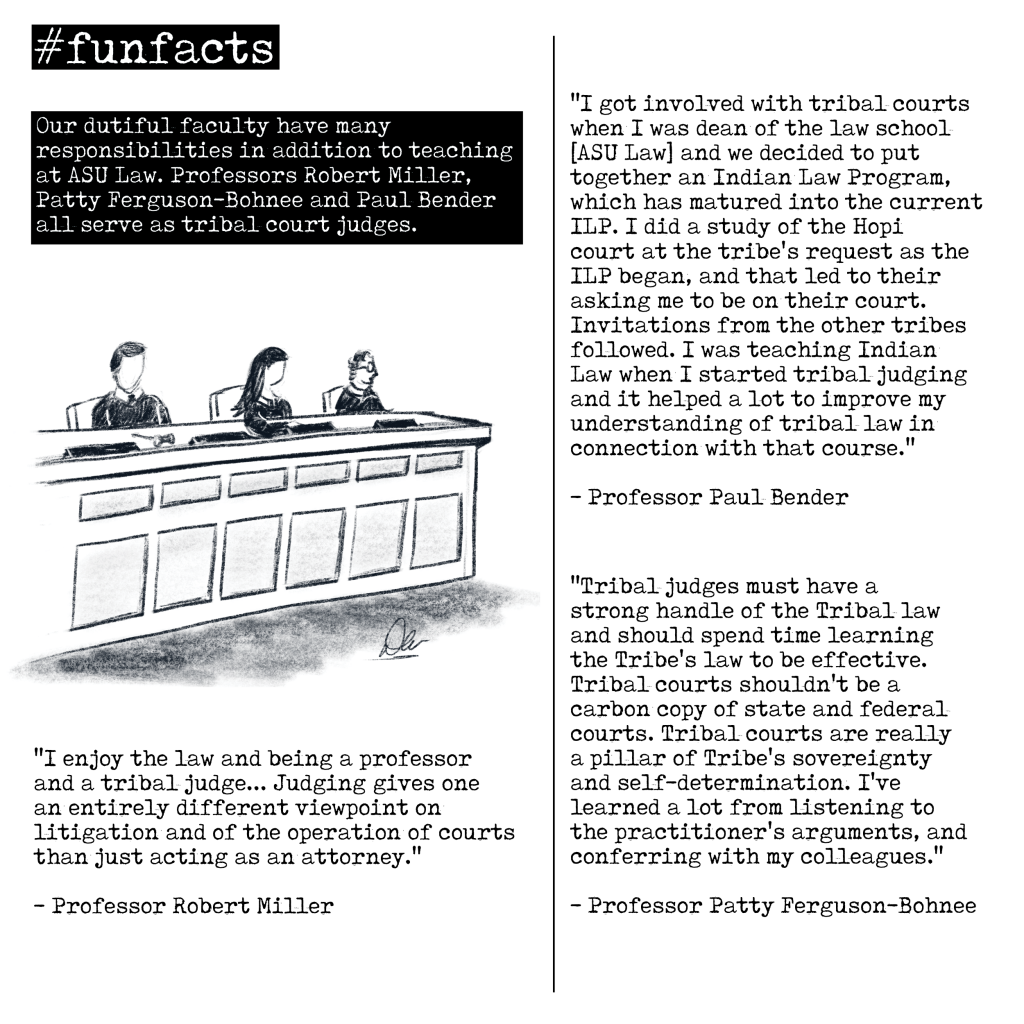Our dutiful faculty have many responsibilities in addition to teaching at ASU Law.

Professor Patty Ferguson-Bohnee is an associate judge for the Hualapai Tribal Court in
Peach Springs, Arizona.
“I was appointed Associate Justice on the Hualapai Court of Appeals in 2015,”
Ferguson-Bohnee said. “Tribal judges must have a strong handle of the Tribal
law and should spend time learning the Tribe’s law to be effective. Tribal
courts shouldn’t be a carbon copy of state and federal courts. Tribal courts
are really a pillar of Tribe’s sovereignty and self-determination. I’ve
learned a lot from listening to the practitioner’s arguments, and conferring
with my colleagues.”
Professor Robert Miller is a justice and chief justice on the court of
appeals for the Confederated Tribes of the Grand Ronde Indian Community, and
was appointed the interim chief justice for the Pascua Yaqui Tribe Court of
Appeals.
Miller has been a tribal court judge since 1994. He was hired as a pro tem
appellate judge with the Northwest Intertribal Court System based in Washington
just three years out of law school. “Judging gives one an entirely different
viewpoint on litigation and of the operation of courts than just acting as an
attorney,” Miller said. “Many Indian nations still need legally trained judges,
and all tribes will continue to need such judges in the future.”
Professor Paul Bender is the chief judge of the Fort McDowell Supreme
Court, chief judge of the San Carlos Apache Court of Appeals, justice of Salt
River Pima-Maricopa Court of Appeals, and justice of the Tonto Apache Court of
Appeals.
Bender started his pathway to tribal judging in the late 1980s with the Hopi Court
of Appeals. “I got involved with tribal courts when I was dean of the law
school [ASU Law] and we decided to put together an Indian Law Program, which
has matured into the current ILP,” he explained. “I did a study of the Hopi
court at the tribe’s request as the ILP began, and that led to their asking me
to be on their court. Invitations from the other tribes followed. I was
teaching Indian Law when I started tribal judging, and it helped a lot to
improve my understanding of tribal law in connection with that course.”
